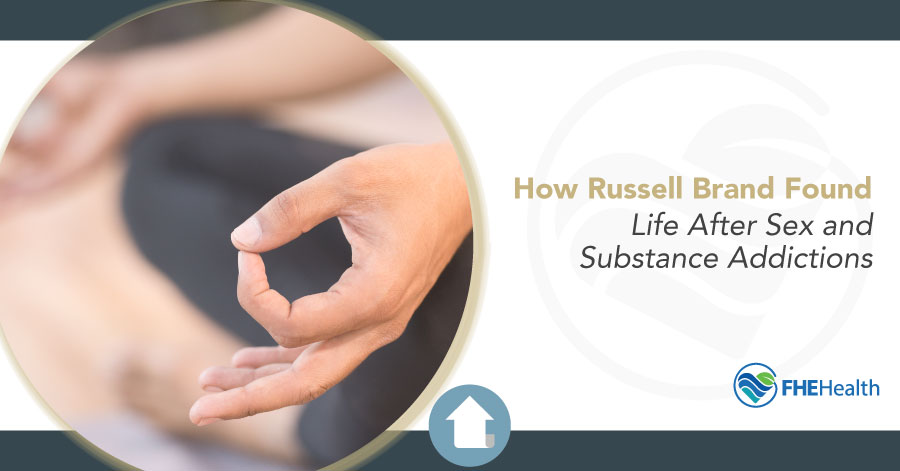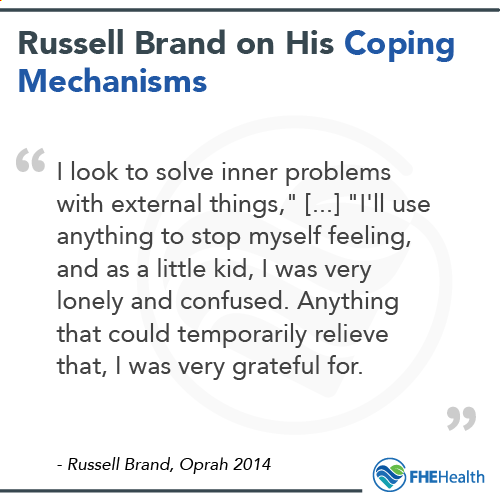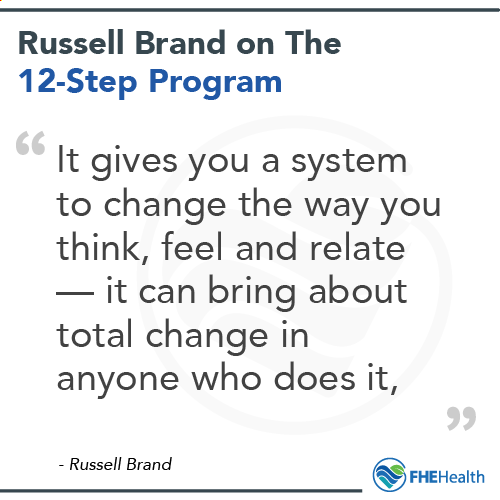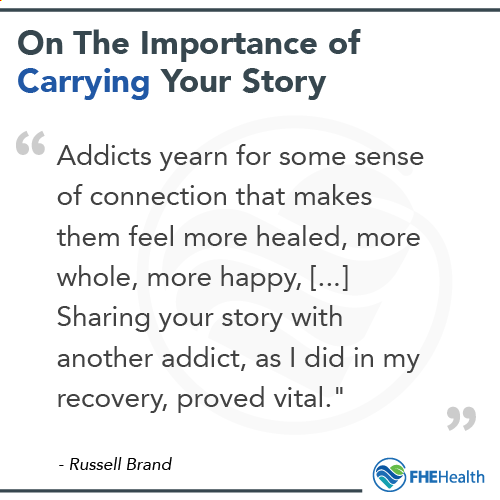
English comedian, actor, author, and activist Russell Brand is a household name in America, the UK, and beyond. From his tumultuous marriage to Katy Perry to his well-known struggles with substance abuse, Brand has led a challenging life.
However, the hurdles he has experienced have not left him hopeless. Through hard work and dedication, he has been able to embrace a healthier, happier life. This is what you can learn from Russell Brand’s recovery.
Start Treatment Now
Treatment can begin quickly and discretely, get started now
The Early Life of Russell Brand
Russell Brand was born and raised in Essex, England, primarily by his mother after his parents split early in his childhood. Unfortunately, his mother was diagnosed with cancer when he was in his teens, leading to an unstable home life with relatives while his mother underwent treatment. During this time, he suffered from bulimia, involving him bingeing on sweets for the euphoric feeling the experience gave him.
After his mother’s recovery, he had the chance to return home but chose to leave shortly after at age 16 due to challenges with his mother’s partner. At this time, he started experimenting with drugs like marijuana, ecstasy, and LSD. Brand’s relationship with his father was tumultuous at best; he only saw his father occasionally, including a trip to Thailand to visit sex workers as a teenager.
Brand’s interest in performance manifested at a young age; his first role was in a rendition of Bugsy Malone at 15. From there, he began to work as an extra in film projects. He was accepted into the prestigious Italia Conti Academy but was expelled for substance abuse issues.
A Spiral Into Abuse

Brand has a long history of abuse and addiction. Throughout his life, his addictions and predilections have been varied, ranging from eating disorders to pornography addiction, before resulting in excessive drug and alcohol use. He has also been diagnosed with ADHD and bipolar disorder, two factors that likely contributed to the growing cycle of abuse.
At the peak of his abuse, there were few drugs Brand wasn’t willing to take. Heroin was a personal favorite, but he also used crack, marijuana, meth, alcohol and hallucinogens. While necessary to him at the time, his problems with drug addiction affected many aspects of his life. Brand said, “I hit rock bottom in 2003 with an addiction to heroin, which cost me a job at MTV, a radio show, friends, and girlfriends.” Over the course of his addiction, Brand’s abuse saw him arrested 12 times.
He started using hard drugs in 1999, which culminated in a serious heroin problem that spanned four years. At this time, he also fell into a pattern of sex addiction, using a wide range of vices outside of himself to attempt to cope with the world around him.
“I look to solve inner problems with external things,” he told Oprah during a 2014 interview. “I’ll use anything to stop myself feeling, and as a little kid, I was very lonely and confused. Anything that could temporarily relieve that, I was very grateful for.”
Breaking Away From Addiction
 By 2003, when he was 27, he knew it was time to make a change. His friend and then-manager, Chip Sommers, told him that if he didn’t get help, he would end up in prison, dead, or in a residential psychiatric care facility. Instead of facing these eventual fates, Brand decided to get clean, once and for all.
By 2003, when he was 27, he knew it was time to make a change. His friend and then-manager, Chip Sommers, told him that if he didn’t get help, he would end up in prison, dead, or in a residential psychiatric care facility. Instead of facing these eventual fates, Brand decided to get clean, once and for all.
To battle his demons, Brand took the same first step as millions of others around the world: he entered the Alcoholics Anonymous program. Twelve-step programs are popular worldwide, offering a way to come to terms with addiction, make amends, and focus on a brighter future free of the tethers of drugs and alcohol.
While this process doesn’t work for everyone, Brand is convinced that his participation in Alcoholics Anonymous is directly related to his recovery. It’s certainly an effective course of care for many people, providing a foundation upon which to build a life of sobriety. With over 115,000 groups around the world and millions of participants since the program’s founding, AA has successfully helped 22% of participants stay sober for 20 years or more.
Start Treatment Now
Treatment can begin quickly and discretely, get started now
Reinterpreting the 12 Steps
Despite the popularity of 12-step programs, their anonymous nature makes it hard for some participants to talk about them. Admitting involvement in such a course of treatment seems almost shameful as if the person didn’t have adequate willpower to overcome addiction solo.
However, Russell Brand seeks to change this. He is remarkably open about his time in AA and the amazing influence it has had on him. “It gives you a system to change the way you think, feel and relate — it can bring about total change in anyone who does it,” he explains about AA.
He even wrote a book that attempts to reconstruct the 12 steps in a way that resonates with less orthodox substance users in an effort to reach a larger audience. Recovery: Freedom From Our Addictions is a non-secular spin on the standard steps, providing a road map for success regardless of personal beliefs. “I wrote it the way I did because the classic program seemed a little bit exclusive,” he says. “After all, lots of Muslims and Jews and Hindus have addictions too.”
Since entering a 12-step program in 2003, Brand has managed to remain sober. He’s candid about his substance abuse habits and the consequences of his actions and is always vocal about the need to get support. He believes in building a community during the recovery process, creating a world that ensures those seeking help are not alone.
 “Addicts yearn for some sense of connection that makes them feel more healed, more whole, happier,” he says. “Sharing your story with another addict, as I did in my recovery, proved vital.”
“Addicts yearn for some sense of connection that makes them feel more healed, more whole, happier,” he says. “Sharing your story with another addict, as I did in my recovery, proved vital.”
Brand truly believes in the community that a treatment program can provide. Unlike many celebrities who choose to go to rehab under a shroud of secrecy, Brand is willing to break the stigma associated with getting help and speak candidly about the advantages. “Under the guidance of a mentor, with the support and community of other people on the same path, you have, by following the actions suggested by this program, broken loose from your prior confinement and become a different person,” he explains. The right rehabilitation program can be that community, providing the foundation of support necessary for a healthy future.
Russell Brand hopes that by communicating his experiences, sharing his feelings, and expressing the reality of his addiction, he can inspire others to seek sobriety. As he explains it, recovery means “recovering the person that you were intended to be.”
Addiction can affect anyone, regardless of fame and fortune. By seeking help, anyone can attain Russell Brand’s recovery experiences. If you or someone you love is living with drug addiction, please contact FHE Health to learn more about a comprehensive approach to addressing addiction.
About Kristina Robb-Dover
Kristina Robb-Dover is a content manager and writer with extensive editing and writing experience... read more






